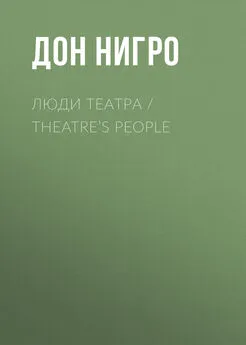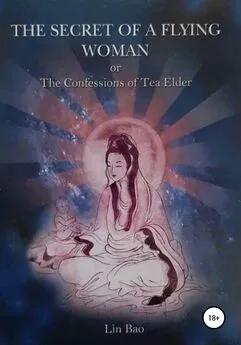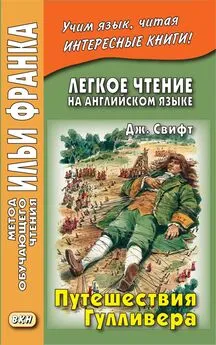The Theatre - Kellerman, Jonathan
- Название:Kellerman, Jonathan
- Автор:
- Жанр:
- Издательство:неизвестно
- Год:неизвестен
- ISBN:нет данных
- Рейтинг:
- Избранное:Добавить в избранное
-
Отзывы:
-
Ваша оценка:
The Theatre - Kellerman, Jonathan краткое содержание
For all its many crimes of passion and politics, Jerusalem has only once before been victimized by a serial killer. Now the elusive psychopath is back, slipping through the fingers of police inspector Daniel Sharavi. And one murderer with a taste for young Arab women can destroy the delicate balance Jerusalem needs to survive.
Kellerman, Jonathan - читать онлайн бесплатно полную версию (весь текст целиком)
Интервал:
Закладка:
He thought about Roselli again. From monk to yeshiva student.
A spiritual quest? Or just another impulsive shift for an unbalanced mind?
Another crazy American. With crazy eyes?
Thousands of Americans walking the streets of Jerusalem-find the one with the crazy eyes. Like sifting granules of gold for a single speck of dross.
Big mess, but small country. An outsider couldn't submerge himself indefinitely.
He took pen in hand, outlined his plan.
Airline cross-checks, page-by-page reviews of tens of thousands of uncomputerized passport records-the tedium the Chinaman had dreaded out loud but which was the surest way to fine-carve the sculpture. Canvasses of hotels, pensiones, hostels, dormitories, housing agents and automobile rental firms, travel and tour companies, kibbutzim and moshavim that took on foreign volunteers.
The evil bastard couldn't hide deep enough. He'd root him out, put an end to the defilement.
For the first time in a long time he felt lightened with hope. The mastery of the hunter.
His thoughts were interrupted by a knock on the door.
"Yes?"
The door opened a crack and a uniform stuck his head in. Young, gawky, with a peach-fuzz face, he had to be barely out of the training course. He blinked rapidly, bobbed his head, looking everywhere but at Daniel.
"Pakad Sharavi?"
"Yes? Come in."
The patrolman's body remained in the corridor; only his head bobbed around inside the office, jumpy and vigilant, like a chicken watching out for the shohel's knife.
"What is it?"
The uniform bit his lip and chewed air. When he finally got the words moving, they tumbled out in a rush:
"Pakad, a dead body, they said to call you, you'd know all about it. In Talpiyot, along the industrial stretch. Not far from the lot where we tow the parking violators."
BOOK THREE
Dr. Levi's promptness was commendable. Within hours of the removal of the body to Abu Kabir, the necropsy findings were phoned to Daniel.
But the pathologist might just as well have taken his time. The wounds on number three were identical to Fatma's and Juliet's, save for one bit of information that Daniel had anticipated: The killer had removed Shahin Barakat's ovaries and her kidneys.
Just as he'd done, ten years ago, to his third American victim. The Indian girl, Shawnee Scoggins.
Shahin's body had been found, dumped like garbage in a stand of eucalyptus, reeking of encroaching decay and menthol. Only meters from the police tow yard.
Thumbing his nose at us.
Shahin. Another pretty face preserved intact above the gaping neck wound. Nineteen years old, black hair lustrous, thick, and wavy. Dainty pierced ears, the earrings missing.
But, unlike the other, married. The husband had been hanging around the Kishle substation for days, dogging the uniforms, begging them to find his wife.
"Ex-wife." Patrolman Mustafa Habiba had been quick to clarify, the moment Daniel entered the substation, telling his side of the story, then rushing off to fetch the Pakad an unrequested cup of Turkish coffee and a piece of baklava wrapped in wax paper. The Arab policeman was a leftover from the days of Jordanian occupation, unschooled, nearing sixty, and waiting for his pension from the Jews. Allowed to remain on the force because of his familiarity with the black alleys and their denizens, the desire by the brass to maintain the illusion of continuity.
"He kicks her out, give her three times talaq, then changes his mind and wants us to be the marriage counselors. How were we to know, Pakad?"
Habiba needed a shave. His grizzled face twitched with fear; his uniform needed ironing. Daniel had brought him back to Headquarters and he looked out of place in the sterile emptiness of the interrogation room. An antiquity.
Forty years of pocketing petty baksheesh and dishing out bureaucratic indifference, thought Daniel, and now he's terrified that indifference is going to be twisted into something cruel.
"There was no way to know," Habiba repeated, whining.
"No, there wasn't," said Daniel. The man's anxiety was starting to wear on him.
"What difference would it have made had we looked for her?" insisted Habiba. "When this Butcher wants someone, he gets her."
There was awe in the old policeman's voice when he spoke of the killer. Awe undercoated with contempt for his own police force.
He thinks of the bastard as superhuman, some kind of demon-a Jewish demon. The helplessness-the homage to evil-angered Daniel and he had to restrain himself from dressing the old policeman down.
"Marriage counselors," muttered Habiba. "We're too busy for that kind of nonsense."
Anger overtook restraint.
"Of course you are," said Daniel. "Feel free to return to Kishle. Don't let a murder investigation keep you from your pressing business."
Habiba flushed. "I didn't mean, Pakad-"
"Forget it, Officer Habiba. Go back to Kishle. Don't worry, your retirement's intact."
Habiba started to say something, thought better of it, and left the room.
Daniel looked at his watch. Six P.M. Goodbye, family; goodbye, Shabbat. The husband was in another room, being comforted by relatives under the watchful eye of the Chinaman and Shmeltzer. Daniel had tried to get something out of him but the poor guy was too distraught, frozen silent, near catatonic, only the hands moving-scratching his face bloody. The imperviousness to pain chilled Daniel's heart.
Maybe Daoud could do better. He was due over from the Old City any minute. No mistaking the joy in his voice at being reeled in-jubilation at being regarded as someone with special talents. And relief at being pulled off the Roselli surveillance. The timing couldn't have been better-last night's watch had now provided the monk with an ironclad alibi.
Daniel tried to imagine Roselli as a yeshiva student, wondered how long the monk would stay faithful to his latest mistress. The spartan lodgings and seventeen-hour days Buchwald demanded from his students might not prove too different from the rigors of monkhood. But Daniel suspected that Roselli was one of those philosophic grasshoppers, leaping from creed to creed. A searcher destined never to find what he was looking for, because you had to fill your own void. No rabbi or priest or mullah could do it for you.
Not that the searchers would ever stop searching. Or flocking to Jerusalem. The city was a psychic magnet, drawing in the Rosellis of the world and those who promised them salvation. At that first meeting at The Star, Shmeltzer had bemoaned the influx of fanatics and nut cases as if it were a new phenomenon, but the attraction was as old as Jerusalem itself. Pilgrims and self-flagellators, crucifiers and false messiahs, visionaries, dervishes, charlatans, and the willfully blind. Determined to squeeze blood out of every rock, hallucinate sacred flames licking from every arid clump of mesquite.
Searchers, some of them undoubtedly mad, others teetering on the brink of madness. Yet, despite them, the city endured wave after wave of destruction and rebirth. Or maybe because of them.
Mad but benign, seeking internal order.
Unlike the slashing, plundering, mocking monster he was after.
Beast of the highway.
Disorder, internal collapse-hell on earth-was what this one craved.
Daniel resolved to burn him.
He sat behind a one-way mirror and watched Daoud conduct the interview. Hardly a sophisticated concealment, but if Abdin Barakat noticed it, he gave no sign.
The Arab detective had all the right moves-authority, compassion, patience, appeals to a husband's desire to find his wife's murderer and avenge her death. But to no avail in the beginning: Barakat blocked him out as completely as he had Daniel.
If grief was proportional to devotion, no man had ever possessed greater love for a woman than Abdin Barakat for Shahin. His grief was silent but all the stronger for it, as eloquent an opera of woe as Daniel had ever heard.
He looks dead himself, Daniel thought. Sunken-cheeked, stiff, lifeless features, lusterless eyes half-hidden in the darkness of cavernous sockets. The coarse complexion bleached pale as gauze bandage. A young man mummified by suffering.
Eight years older than Shahin, but that still made him young. Tall, sparely built, with short, poorly cut hair, the cracked fingernails and grease-stained clothes of a working man.
An ironworker in one of the stalls in the Old City. Repairer of pots and pans, family business-the father was the boss. And the landlord. For four married years, home had been two rooms tacked on illegally to the top story of the Barakat family dwelling in the Muslim Quarter. A cooking space and a tiny bedroom for Abdin and Shahin-their names rhymed; it implied a certain harmony-because without children, what need was there for more?
The childlessness was at the root of the divorce, Daniel was sure. Four barren years would have stretched the tolerance of Abdin's family. The Muslims had no use for a woman who didn't bear, made it exquisitely easy for a man to dispose of her: Talaq, verbal denouncement unencumbered by justification, set the divorce process in motion. Three denouncements, and the break was final.
On the other side of the mirror, Barakat began weeping, despite himself; the breakdown was beginning. Daoud handed him a tissue, He clutched it, wept harder, tried to force back the tears but failed. Burying his face in his hands, he moved it back and forth, as if shaking his head no. Daoud pulled out another tissue and tried again.
Patience paid off. Eventually, after two hours of listening and tissue-offering and gently prodding, Daoud got Barakat talking-softly but rapidly, in near-hysterical spurts.
A fragile victory, and the Arab detective knew it. He put his body language into the interrogation, bringing his face so close to Barakat's that they could have kissed, placing his hands on the husband's shoulders and exerting subtle pressure, his knees touching Barakat's knees. Shutting out the room, the universe, so that only questioner and answerer existed in empty white space.
"When's the last time you saw her, Mr. Barakat?"
Barakat stared at the floor.
"Try to remember. It's important, Mr. Barakat."
"M-Monday."
"This past Monday?"
"Yes."
"You're certain of that?"
"Yes."
"Not Sunday or Tuesday?"
"No, Monday was the day-" Barakat burst into tears, buried his face in his hands again.
Daoud looked past the heaving shoulders, through the mirror at Daniel, raised his eyebrows, and tapped the table silently. Glancing at the tape recorder on the table, he waited until Barakat's sobs diminished to sniffles before continuing.
"Monday was the day what, Mr. Barakat?"
"It was complete."
"What was complete?"
No answer.
"The third talaq?" prompted Daoud.
Barakat's reply was barely audible: "Yes."
"The divorce was final on Monday?"
Jerky nods, tears, more tissues.
"Was Shahin scheduled to leave your house on Monday?"
"Yes."
"Where was she planning to go?"
Barakat uncovered his face. "I don't know."
"Where does her family live?"
"There is no family, only a mother in Nablus."
"What about the father?"
"Dead."
"When did he die?"
"Many years ago. Before the " Tears flowed down the sunken cheeks, wetting the lacerations and causing them to glisten.
"Before you were married?"
"Yes."
"What about brothers or sisters?"
"No brothers or sisters."
"An only child? Not a single male in the family?" Daoud's tone was laden with disbelief.
"Yes, a great shame." Barakat sat up straighter. "The mother was a poor bearer, useless organs, always with the female sicknesses. My father said "
Читать дальшеИнтервал:
Закладка:



![Джеймс Купер - Пионеры, или У истоков Саскуиханны [The Pioneers, or The sources of the Susquehannah]](/books/1066142/dzhejms-kuper-pionery-ili-u-istokov-saskuihanny-t.webp)





